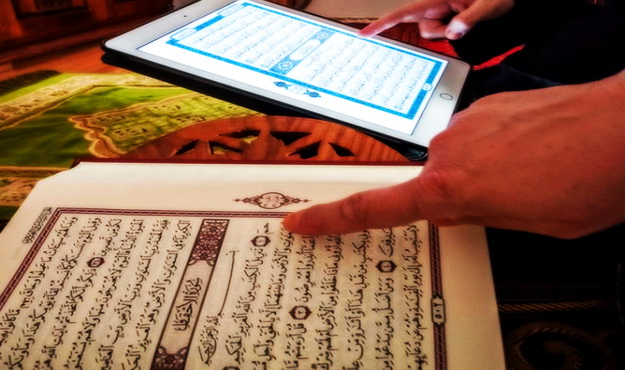In The Name of Allaah, The Most Merciful, The Bestower of Mercy
Allaah (The Most High) said:
“And (remember) when We took a covenant from the Children of Israel, (saying): Worship none but Allah (Alone) and be dutiful and good to parents, and to kindred, and to orphans and Al-Masakin (the poor), [Tafsir At-Tabari, Vol. 10, Page 158 (Verse 9:60)] and speak good to people [i.e. enjoin righteousness and forbid evil, and say the truth about Muhammad Peace be upon him], and perform As-Salat (Iqamat-as-Salat), and give Zakat. Then you slid back, except a few of you, while you are backsliders.” [Surah Al-Baqarah, 2:83]
These prescribed (divine) commands are from the fundamental affairs of the Religion which Allaah commanded in every law [revealed to the Prophets and Messengers before Muhammad (Sallallaahu alayhi wassallam)] because they comprise of an overall benefit in every era and place, therefore they cannot be abrogated just as a foundation of the religion [cannot be abrogated]. And for this reason Allaah [The Most High] commanded us -in Surah An-Nisaa Aayah 36- to fulfil them. Allaah [The Most High] said:
“Worship Allah and join none with Him in worship, and do good to parents, kinsfolk, orphans, Al-Masakin (the poor), the neighbour who is near of kin, the neighbour who is a stranger, the companion by your side, the wayfarer (you meet), and those (slaves) whom your right hands possess. Verily, Allah does not like such as are proud and boastful;” [Surah An-Nisaa, 4:36]
Few Reminders From Surah Al-Baqarah, Ayah 83:
[And (remember) when We took a covenant from the children of Israel]; – This was due to their stubbornness, for indeed they disobeyed every command and did not accept it, except by way of a solemn oath and a firm covenant.
[Worship none but Allaah (alone)]; – This is a command to worship Allaah [alone] and not to associate a partner with Him. All [righteous] deeds cannot be accepted if they are not [built] upon this foundation- a right of Allaah to be fulfilled by His slaves.
Then Allaah said: [And be dutiful to parents]; – Meaning: Be dutiful to parents by treating them kindly- in speech and action. This command [necessitates that] disobedience to parents is forbidden [i.e. as long as they do not command you to disobey Allaah and His Messenger] and it is forbidden to mistreat them. The absence of kind treatment can either be accompanied by evil behaviour, which is the greater crime; or it can occur without evil behaviour, which is also forbidden. Kind treatment is to be extended to kindred, orphans and the poor.
Then Allaah [The Most High] commanded Bani Israa’eel to be kind towards mankind in general, saying: [And speak good to people]; – Meaning: Utter good speech; enjoin good, forbid evil, teach people knowledge and greet them with Salaam etc. And when it is the case that a person is not able to give wealth to everyone, therefore Allaah [The Most High] commanded [us] to treat everyone kindly through kind speech, which every person is able to fulfil. This shows that to utter evil speech against the people is prohibited, even against a person who disbelieves in Allaah.
And due to this Allaah [The Most High] said: [And argue not with the people of the Scripture (Jews and Christians), unless it be in (a way) that is better (with good words and in good manner)].
And among the good manners of a person -which Allaah has commanded a person to fulfil-is that one should be upright in speech and action, and should not use evil or foul speech. One should neither curse nor become argumentative; rather one should be good mannered, forbearing, courteous towards everyone and exercise much patience when harmed by the people – in fulfilment of Allaah’s command and hoping for Allaah’s reward.
Allaah commanded Bani Israa’eel to establish the prayer and pay the Zakat because the prayer necessitates sincerity to The Only True Object of worship [Allaah] and Zakah necessitates kind treatment towards the servants of [Allaah]. However, after they were commanded to fulfill these good and suitable commandments, they wilfully turned away from it, except a few of them.
[Source: Tayseer Al-Kareem Ar-Rahmaan Fee Tafseer Kalaam Al-Mannaan’ by Imaam Sadi (rahimahullaah). Abridged & slightly paraphrased]
 navedz.com a muslim's Quest for the truth
navedz.com a muslim's Quest for the truth









